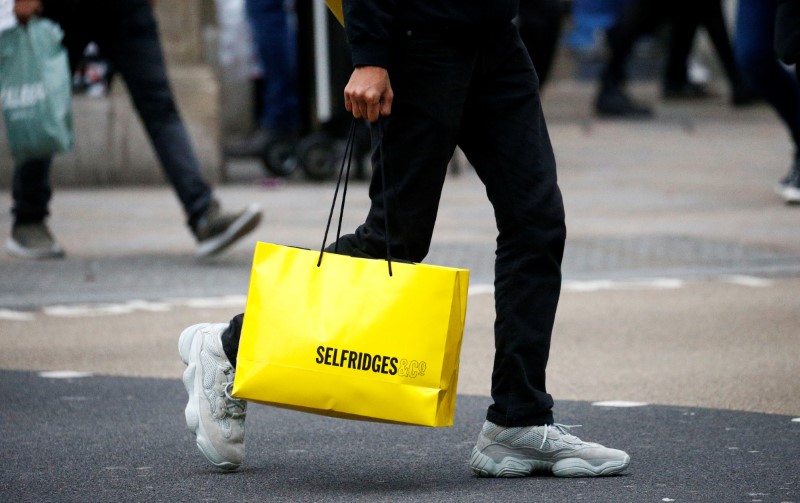By David Milliken and Andy Bruce
LONDON (Reuters) - British shoppers started spending again early this year after a sluggish end to 2019 and industrial orders hit a six-month high, further signs that improved sentiment since December's election is translating into stronger economic activity.
Retail sales beat forecasts to rise by 0.9% in January after a 0.5% monthly decline in volumes in December, Britain's Office for National Statistics said on Thursday.
The recovery was more marked if fuel sales are excluded, which can give a better picture of underlying demand. Sales on that basis rose 1.6% on the month, the most since May 2018 and above all forecasts in the Reuters poll.
Factories reported stronger order books for February as well, with a monthly survey by the Confederation of British Industry pointing to the biggest rise in six months, though they remained below their long-run average.
Consumer and business demand faltered in the latter part of 2019 as parliament deadlocked over Brexit, preventing Britain's economy from growing at all in the last quarter of 2019.
Following a snap election in December, Prime Minister Boris Johnson returned to office with a comfortable majority. Business and consumer sentiment has improved since then, as Britain left the European Union on Jan. 31 with an 11-month transition deal.
The data supports the Bank of England's decision to leave interest rates unchanged last month, on expectations the economy will recover early this year. Sterling erased some earlier losses after the figures came out.
"The British consumer is a hardy beast and having weathered the pre-election uncertainty, we have charged back into the shops," Jeremy Thomson-Cook, chief economist at payments company Equals Group, said.
However, some economists were less sure the pick-up would last, with unusually wet weather and concerns about coronavirus expected to dent consumer demand this month.
SLOWER WAGES
Separate data earlier on Thursday showed employers had made the weakest annual pay offers in more than a year to staff during the three months to the end of January, and many economists predict Brexit uncertainties will re-emerge soon.
Annual sales growth remained lackluster in January, up just 0.8% on the year after 0.9% annual growth in December, broadly in line with economists' forecasts.
Sales at petrol stations fell by 5.7% in January, the most since April 2012, which the ONS linked to higher fuel prices. Clothing sales grew by the most since May 2018 after several months of weakness.
Looking at the three months to January as a whole, annual sales growth was the weakest since May 2013. Excluding fuel, sales did not grow at all between August and December, the weakest such run since comparable records began in 1996.
Earlier in 2019, consumer demand had helped support growth, while businesses had put investment on hold until the course of Brexit became clearer.
Britain has now left the EU, and after the 11-month transition expires at the end of the year, customs checks and new tariffs on trade with the EU are likely.
"It's probably still too early to say whether we've seen the end of the slowdown in the sector," CBI economist Alpesh Paleja said after the improved orders data.

"Notwithstanding improving optimism, the sector is still grappling with longer-term uncertainty over the UK's future relationship with the EU."